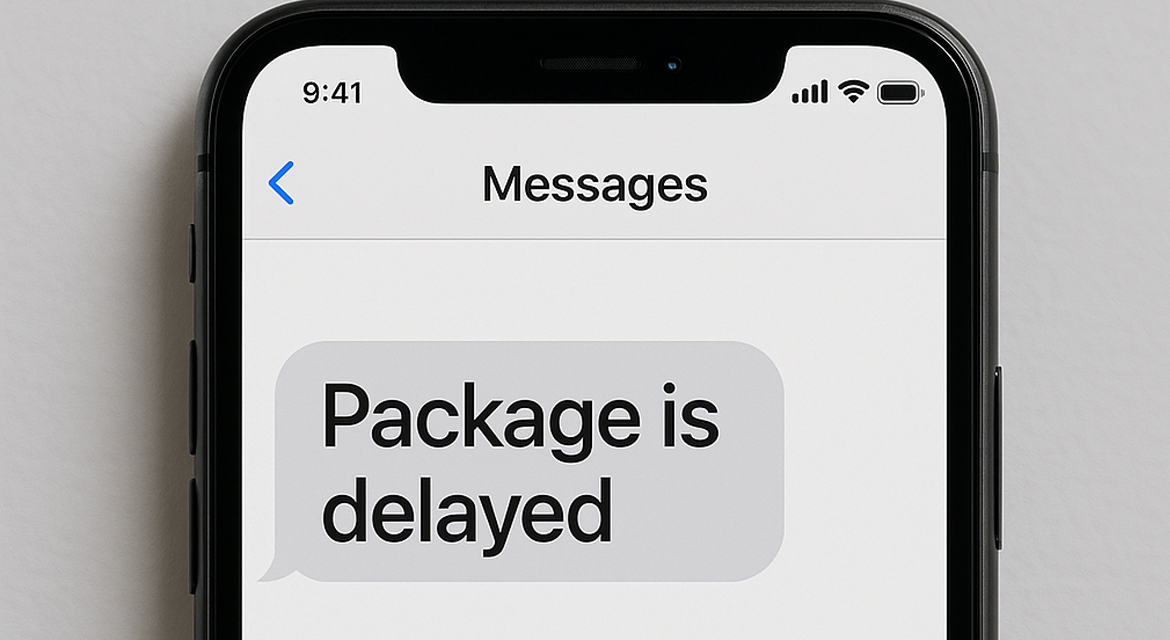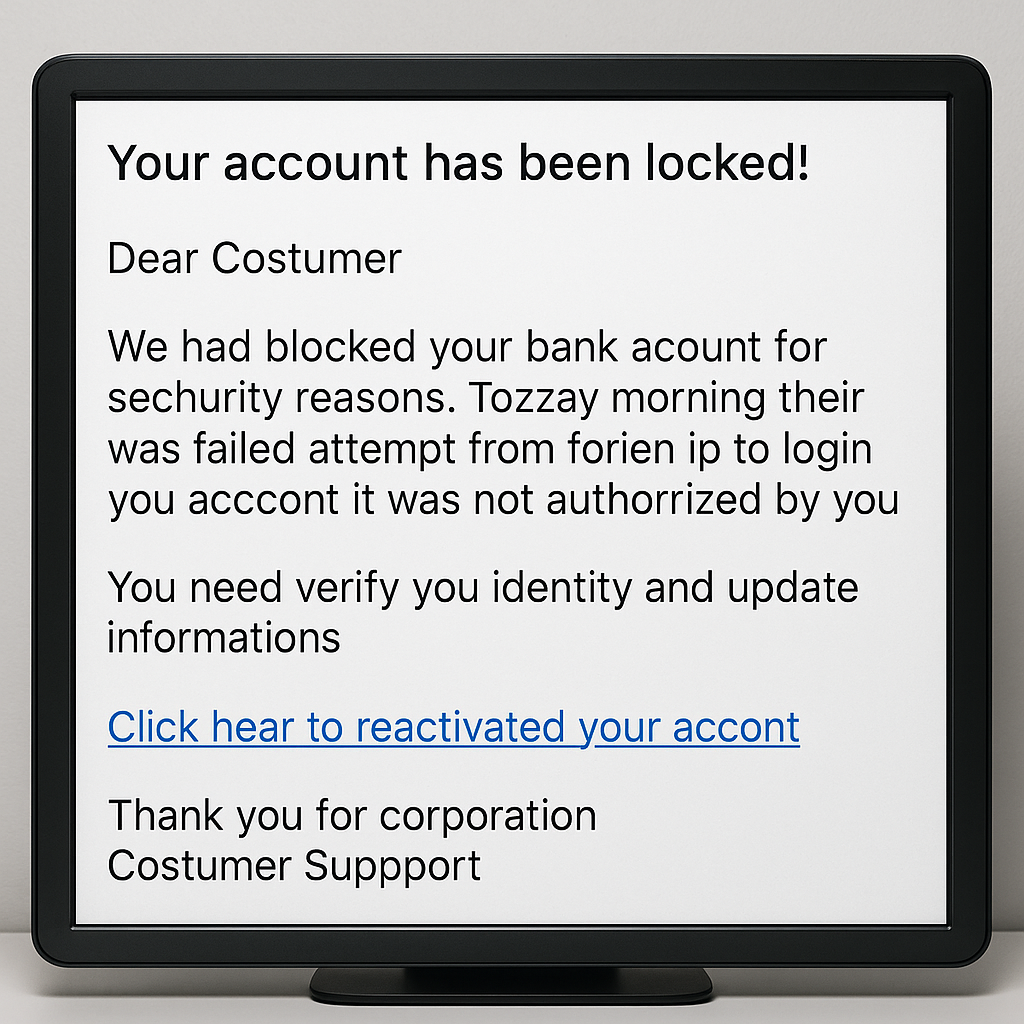Ah, online shopping—the beloved pastime of modern humanity. Few things bring as much joy as clicking *Add to Cart* and imagining the beautiful package that will soon arrive, like a gift from your past, more financially reckless self. It’s that little dopamine boost we all crave, the thrill of tracking your package as it moves closer to your doorstep. But as glorious as two-day shipping and checkout discounts may be, they’ve created a fertile playground for a less savory cadre of opportunists: scam artists.
And their favorite bait? The phrase, “Your package is delayed.” It’s a message that strikes terror in the hearts of online shoppers everywhere, especially when you’re eagerly awaiting that one item you convinced yourself was an absolute necessity. Scammers know this emotional vulnerability, and they’ve turned it into a lucrative business model. Welcome to the wild world of text scams, where criminals exploit our collective shopping addiction with precision and aplomb. In this article, we’ll dive deep into their tactics, why they work so well, and how you can stay one step ahead of these digital tricksters.
The Anatomy of the Scam Text
It always starts innocently enough. Picture this: you’re sipping your morning coffee, basking in the glow of acquiring something you didn’t need but absolutely wanted, when your phone buzzes. The message reads something like:
"Your package is delayed. Update your shipping information to avoid cancellation: [Insert sketchy link here]."
The scammers know the art of subtlety. They don’t bombard you with typos or bizarre grammar (well, not always). Instead, they mimic the tone and style of legitimate delivery notifications. The link they provide, though suspiciously long and filled with random characters, is almost believable at first glance. The webpage it leads to? A near-perfect replica of a trusted retailer’s site. The message is carefully crafted to evoke urgency and panic in your brain, making you act before you think.
If you’re not paying close attention—or, let’s be real, if you’re waiting on the 14th package this month—it’s easy to fall for the trap. The scammers thrive on your instinct to solve the problem immediately, and before you know it, you’ve entered your personal information into a portal that’s about as secure as a slide at a waterpark. Moments later, the regret sets in. Maybe you notice the web address ends in ".scam-central.biz," or maybe you realize you haven’t ordered anything in weeks. By then, the damage is done, and you’re left wondering how to explain this to your bank or IT department without sounding foolish.
Why It Works: The Psychology of Package Panic
Why are these scams so effective? Because they expertly exploit human psychology, especially in the age of instant gratification. In a world where we expect two-day delivery and real-time tracking updates, the thought of a delayed package feels like a personal affront. That sense of urgency and dread is precisely what scammers leverage to make you fall for their schemes.
Think about it: when you’re eagerly awaiting your new gadget or that trendy outfit, you’re already emotionally invested in its arrival. Scammers swoop in at just the right moment, when you’re vulnerable, distracted, or impatient. Their messages are carefully timed to coincide with peak shopping seasons—Black Friday, holiday sales, or even back-to-school promotions—when shoppers are inundated with purchases and tracking updates.
According to recent statistics, Americans receive an average of 21 packages per year. Multiply that by the number of people per household, and the sheer volume of deliveries creates fertile ground for deception. The odds of you actually waiting for a package when a scam text hits your phone are painfully high, making their tactics almost foolproof.
Another reason these scams work is the “official tone” they employ. Phrases like “action required” or “last chance to update” bypass your skepticism and trigger a knee-jerk reaction. And let’s be honest, when was the last time you critically scrutinized a text before clicking on it? Between spam emails, work deadlines, and actual delivery notifications, it’s easy to miss the red flags. Scammers know this, and they exploit the cracks in your vigilance.
Classic Scam Variations
While the “Your package is delayed” text is the scammer’s pièce de résistance, it’s by no means the only trick in their repertoire. These cyber tricksters are creative, constantly finding new ways to prey on your shopping habits. Here are a few other variations to watch out for:
1. "Unable to Deliver"
This one usually arrives with the ominous message: "Delivery attempt failed. Reschedule your delivery by clicking here." It’s designed to make you feel guilty, prompting you to act immediately. The thought of missing your package because you were distracted by Netflix or a TikTok rabbit hole is enough to send anyone into a frenzy. But here’s the spoiler: No one actually tried to deliver anything. The scammers are simply banking on your guilt—and it works.
2. "Customs Hold Up"
This scam targets those of us with a penchant for international shopping. The message claims that "Your package is being held at customs. Pay the clearance fee to release it." It’s a clever ploy, especially if you’ve splurged on something rare, exotic, or ridiculously overpriced. The irony? The only thing being held up is your dignity when you realize you’ve been duped. Customs officials aren’t holding your package hostage; scammers are holding your wallet hostage.
3. "Prize Package Notification"
A delightful twist on the classic scam: "Congratulations! You’ve won a free gift. Claim your prize by confirming your shipping details." Who doesn’t want free stuff? The message appeals to our love of giveaways and discounts, making it seem like the ultimate reward for being an avid shopper. But remember: the only thing free here is the malware you’ll accidentally download. If you ever receive this message, treat it as you would a free sample of spam casserole—thanks, but no thanks.
How to Protect Yourself
Text scams can be unnerving, but they’re not unavoidable. With a little vigilance and common sense, you can safeguard yourself from falling into their traps. Here are some simple yet effective tips:
- Verify the sender: Most legitimate delivery services have specific domains or contact methods. If the text comes from a random string of numbers or an email address like “scamcentral@sketchy.biz,” you can safely assume it’s fake.
- Don’t click suspicious links: If you’re genuinely concerned about a delivery, go directly to the retailer’s website or app instead of clicking on the link in the text.
- Check your orders: Keep track of your online purchases. If you don’t remember ordering a “Mystery Box of Useless Gadgets,” chances are it’s a scam.
- Enable two-factor authentication: This won’t stop scam texts, but it can protect your accounts in case you accidentally enter your credentials on a fraudulent site.
Remember, scammers rely on your momentary lapse in judgment. A few extra seconds of scrutiny can save you hours of frustration and potentially a lot of money.
When All Else Fails: A Sense of Humor
If you do receive one of these scam texts, don’t panic—laugh about it. Picture the scammer sitting in their dimly lit basement, wondering why no one clicked their cleverly crafted link. Maybe even reply with something cheeky, like “Good luck finding my non-existent package!” Just make sure you don’t actually engage with the link.
And hey, if you fall for one of these scams every now and then, don’t beat yourself up. It happens to the best of us. Think of it as a small price to pay for the convenience of modern shopping—like a digital version of losing spare change in your couch cushions.
Shopping online is a joy, and scammers are just its unwelcome side effects. If you can approach these texts with a sense of humor and a healthy dose of skepticism, you’ll come out ahead. Besides, your real package is probably just around the corner—don’t let a scammer’s fake message ruin the anticipation.
Conclusion
Text scams are the unfortunate dark side of our online shopping addiction, but they don’t have to ruin the experience entirely. By staying vigilant, keeping track of your orders, and maintaining a healthy dose of skepticism, you can outwit these cyber tricksters and continue indulging in the joy of package tracking. Just remember: the only thing that should delay your package is a snowstorm, not some scammer with a fake link.
So, next time your phone buzzes with a “Your package is delayed” message, take a deep breath, roll your eyes, and resist the urge to click. After all, your real package is probably already on its way—and it’s worth the wait.












